At Bay Country Financial Services, we’re committed to providing and approving loans to those in need of financial assistance despite poor credit scores—because people are more than a number on a document, and credit woes can stem from countless factors, avoidable and unavoidable. With that in mind, there’s no denying that a high credit score is ideal. Financial opportunities are always evolving, and policies around credit vary from institution to institution. Building credit can open the door to more favorable terms from companies outside of ours, so we’re going to go over a few tips.
Whether you’re starting from scratch or improving your existing score, gaining an understanding of how it all works can help you implement smart strategies for success. Here’s how to start building credit.
Understand Your Current Credit Score
Before you even begin to build your credit, take stock of your situation and find out what your credit score is. Knowing that number could determine your course of action, after all. Scores generally fall between 300 and 850. That’s a pretty wide range, so knowing the number will help you set attainable goals. Sites like AnnualCreditReport.com are useful tools because they allow you to access your credit report without any penalty once per year.
When reviewing your report, it’s vital to keep an eye out for possible inaccuracies like:
- Incorrect account details
- Fraudulent activity or unauthorized accounts
- Outdated negative marks
If you do come across errors in your credit report, it’s well worth your time to get in contact with the issuing credit bureau to remove unwarranted negative marks on your score.
Best Credit Cards for Building Credit
Credit cards, if used responsibly, can be a powerful tool for building your credit—it’s in their name, after all. Here are some of the best credit cards for building credit based on type:
- Secured Credit Cards: These require a deposit, which in turn makes them easier than most to qualify for
- Student Credit Cards: These cards are designed for young adults who haven’t yet accumulated much (or any) credit.
- Credit-Builder Cards: These offer low limits and are designed to build your score over time.
If you want to get the most out of your credit card, follow a few pieces of sound advice. First off, keep your credit utilization under 30% of your limit to ensure you don’t have trouble paying your bills. Make sure you always pay your balance on time to avoid interest charges. Finally, avoid applying for multiple cards simultaneously. This can cause several unnecessary hard inquiries that trigger credit penalties.
Building Credit With Alternative Tools
Credit cards aren’t the only way to build your credit—far from it, actually. Platforms such as Experian Boost or Credit Karma give you the ability to report payments like subscriptions and utilities to improve your score. Some services even let you report rent to credit bureaus, as well. By reporting these payments, you establish a positive payment history, showing that you’re capable of making payments on time and becoming responsible with your finances.
Credit-builder loans are another option. They’re designed to help people build up their credit by making timely and consistent payments.
How to Start Building Credit: Developing Good Habits
It could be argued that financial responsibility all comes down to developing good habits, and that’s no different in regard to credit. Making on-time payments is one of the best ways to build it, and that kind of timeliness requires discipline and planning. Luckily, with so many devices and apps in existence that are designed to help us improve our lives and routines, it’s easy to get a little help developing these habits. Set reminders on your phone that will help you pay bills on time. If your bank account consistently has enough money to pay your bills, setting up autopay on the proper payment portals can help immensely.
Managing Debt Wisely
It’s always good to keep your debt in check—it’s crucial for a good credit score. Here are a few strategies you can utilize to manage it:
- Snowball Method: Start by paying off small debts. This will help you build momentum.
- Avalanche Method: Focus on paying off high-interest debt out of the gate, which helps save money in the long-term.
- Debt Consolidation: Combine several debts into a single loan, making it easier to keep track of the money you owe. It also comes with a lower interest rate.
It’s also in your interest to keep your debt-to-income (DTI) ratio low, as it lets lenders know you can handle debt responsibly. This in turn increases your chances of loan approval outside of Bay Country Financial Services, and could lead to more favorable interest rates.
Monitoring Your Credit Score
Monitoring your credit score helps you stay on top of your financial health. Consider using tools like Credit Karma and myFICO, as they give you real-time credit score updates.
Here are a few tips for staying proactive in building credit:
- Set up fraud alerts that will bring unusual activity to your attention and prevent identity theft.
- Track improvements by reviewing your score monthly.
- Understand how credit score fluctuations can occur so you can take action if there’s a sudden drop.
Building Credit With Discipline
Building credit is a major part of the financial journey that requires patience and discipline. By responsibly managing credit cards, utilizing credit tools, and developing healthy habits, you can improve your credit score, leading to more financial opportunities in 2025 and beyond.
Though these tips are meant to better your opportunities at other institutions, Bay Country Financial Services is always doing its best to support you regardless of your credit score. Should you need a personal loan to overcome a financial issue, we stand ready to help. Get in touch with us today!


